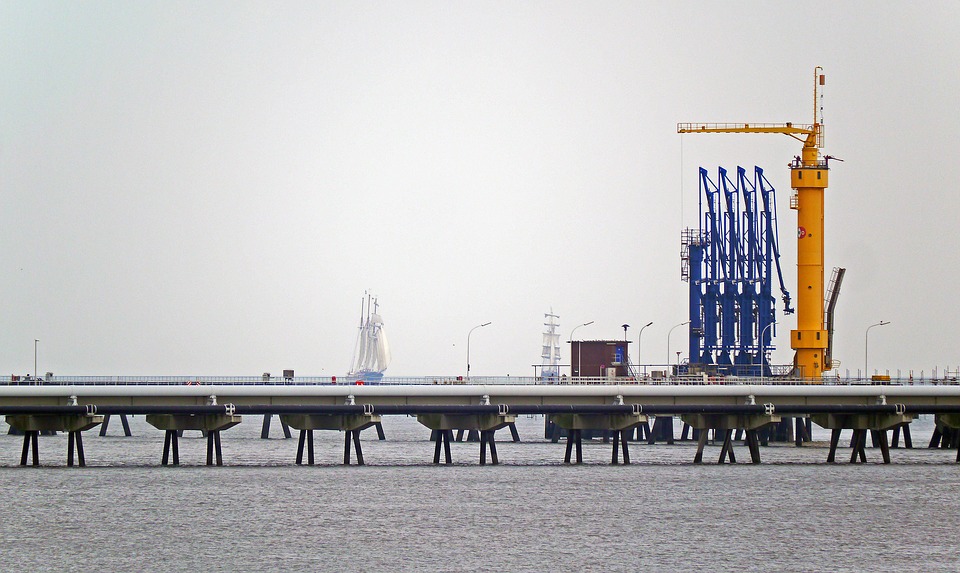The Great Stimulator
Can China stimulate their way to growth?
Oil prices are weighing signs of slowing growth in Germany versus the impact of more stimulus in China, against a backdrop of the U.S. finally not allowing waivers to buyers of Iranian oil and signs that U.S. oil supplies will fall.
Yesterday, the market questioned whether China was doing enough to stimulate its economy after bad trade data. Today they decided they were not doing enough. After lowering the reserve requirement for Chinese banks last week and move to tax cuts instead of infrastructure spending for the sake of infrastructure spending, China announced tax cuts that seem to put global markets and oil back into the risk-on mood.

The Guardian reported that China’s finance ministry has pledged to slash taxes, to reduce the burden on small firms, as part of a new stimulus drive. Under the plan, Beijing will cut value-added tax rates for some companies, including in manufacturing, and hand tax rebates to others. China also plans to step up fiscal expenditure this year, in what looks like a Keynesian push to help companies. Xu Thongchai, Assistant Minister of Finance, told reporters in Beijing that the government was determined to ease the burden on small enterprises and the manufacturing industry, adding: The focus is on enhancement and efficiency. Then in a coordinated move to reassure markets, China’s central bank has promised to make monetary policy more forward-looking, flexible and targeted.
The reason for China’s slowing, of course, is in large part due to the trade war. President Trump, on Monday, said that China is feeling the pain from U.S. tariffs, boding well for a trade deal, but talks so far between the two nations haven’t yielded concrete results, according to the Wall Street Journal.
Yet for oil, we know that there is trade progress as China has restarted imports of U.S. oil supply. Reuters reports that “Three cargoes of U.S. crude are heading to China from the U.S. Gulf Coast, trade sources said on Monday, the first departures since late September and a 90-day pause in the two countries’ trade war that began last month.”
The U.S. says no to waivers for buyers of Iranian oil. Bloomberg News reports that the U.S. plans to grant no new waivers to buyers of Iranian oil as it intensifies efforts to eliminate the Middle Eastern producer’s exports of crude, a senior official said. U.S. sanctions have so far cut Iran’s exports to about 1 million barrels a day from a level of 2.7 million before Washington announced sanctions on the country. Of the eight buyers that secured initial U.S. waivers to buy oil from Iran, only five are still doing so, Brian Hook, the State Department’s special representative for Iran, said in an interview. “We are not looking to grant any new waivers -- that’s been our policy from the beginning,” Hook said. “We’ve been able to achieve a lot of economic pressure on Iran. Eighty percent of their revenues come from oil exports. We want to deny the Iranian regime the revenue that it uses to destabilize the Middle East.”
Yet is that a problem if the global economy falters and oil demand dips? Despite all this bullish news, worries about the strength of the global economy linger. The trade war slowed Germany’s gross domestic product (GDP) to 1.5 percent in 2018, compared with 2.2 percent in 2017, the slowest in 5 years. Domestically the economy seemed strong, but trade weighed on the data.
The Wall Street Journal also reported that the Mexican government said Monday it is importing more gasoline to stem a growing fuel shortage that has angered motorists in much of the country. The fuel crisis was sparked by the government of President Andrés Manuel López Obrador shutting down several pipelines in a bid to contain rampant fuel theft, which it estimates cost state oil company Petróleos Mexicanos, or Pemex, $3 billion last year. Criminal gangs often tap into the pipelines to steal the fuel. The government is trying to make up for the closed pipelines by having gasoline distributed by truck. But the system has created disruption across much of the country, causing long lines for fuel in many cities and hurting commerce, business leaders say. The distribution bottleneck left Mexico’s limited gasoline storage facilities full and delayed seaborne vessels waiting to unload fuel at Mexican ports.
The Wall Street Journal reported over the weekend that Mexican gasoline imports from the U.S. were down sharply in the six weeks since Mr. López Obrador took office on Dec. 1. I bet that will change. U.S. exports should grow even as bottlenecks slow things down. Domestic demand in the U.S. is solid and cheap U.S. oil prices continue to make U.S. oil attractive to foreign buyers. While short term oil may experience some volatility, we feel that in the big picture the lows are in. Hedgers of gas and diesel should use price breaks to lock things in.
Natural gas is pulling back after yesterday’s incredible run. It may have been too much too soon as the predictions of much colder weather still must develop. If the cold hits, you have not seen anything yet. If it does not, then get ready for a crash. Don’t you love these weather markets?
Disclosure: Make sure you prosper all week. Stay tuned to the Fox Business Network where you get the Power to Prosper. Trade updates and levels. Call me at 888-264-5665 or email me at more



